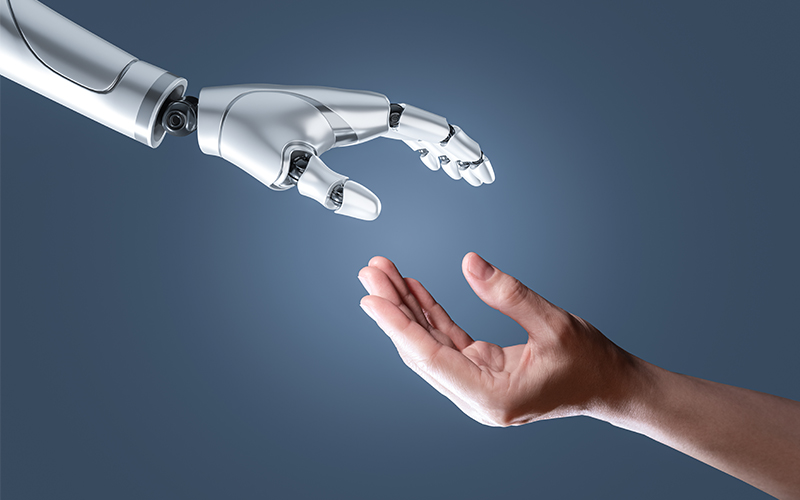BUSINESS TRANSFORMATION
Agentic AI: The Next Wave in Artificial Intelligence
Agentic AI goes beyond traditional AI by making decisions, learning from experiences, and adapting to changes without constant human input. With advancements in AI models and automation, it is transforming industries like healthcare, finance, and manufacturing. This blog explores its impact, benefits, and challenges.
- What is Agentic AI?
- Key differences between Agentic AI and other AI models
- Why is Agentic AI emerging now?
- Enhanced and improved AI capabilities
- Demand for automation
- Scalable computing power
- Integration with existing systems
- Potential areas for usage of agentic AI
- Healthcare
- Manufacturing
- Finance
- Companies/industries adopting agentic AI
- Project AutoGen: A framework enabling the creation of AI agents capable of planning, executing tasks, and interacting with humans and other agents using large language models.
- TaskWeaver: Designed for planning and executing data analytics tasks using large language models (LLMs), facilitating complex problem-solving.
- Next-Gen Copilot: An enterprise solution integrating agentic AI to interpret nuanced instructions and make context-aware decisions with minimal human oversight.
- AI-powered automation platforms: Simplifies the deployment of agentic AI by integrating autonomous agents into automation platforms, enhancing business processes.
- Is it the right time to invest in implementing agentic AI?
- Real-life use cases of agentic AI
- 69% of retailers have reported an increase in their annual revenue as a result of adopting AI. – Retail Touchpoints
- 74% of organizations are currently using AI for financial-crime detection. – BioCatch
- It is expected that remote patient monitoring can save the healthcare industry up to USD 200 billion over the next 25 years. – Market.us Media
- US factories use an estimated $40 billion worth of outdated equipment, resulting in $50 billion in unexpected downtimes. – FinancesOnline
- Long-term implications of agentic AI for organizations and society
- Conclusion
Agentic AI is type of artificial intelligence (AI) that can make decisions, take actions, and learn from experience. Unlike other AI models which require human inputs for decision making, Agentic AI is designed to understand their environment and build to react to changes accordingly.
Agentic AI, generative AI, and robotic process automation (RPA) are all different approaches to artificial intelligence and automation.
| Agentic AI | Non-agentic AI |
Can learn from experiences and adapt to dynamic situations. |
Follow rule based and defined patterns |
Possesses decision-making steps |
Cannot make independent decisions |
Can set and pursue its own goals. |
Execute tasks based on use inputs |
Operates with higher level of autonomy. |
Relies on manual instructions. |
Recent advancements in technology have led agentic AI to be the new level of AI autonomy. The large language model (LLMs) built using agentic AI has ability to understand and generate human like language thus providing required linguistic and cognitive foundation for agentic AI systems
Key reasons for emergence of Agentic AI are as follows.
Agentic AI revolutionizes its presence across different industries; a few of them are mentioned here.
In healthcare, agentic AI assistants help in analyzing patients’ medical records, such as their vitals and other reports to help in surgical procedures, thus enhancing patient outcomes. Agentic AI also help real-time patient monitoring and proactive care recommendations.
In manufacturing, agentic AI assistants help in predictive maintenance which identifies potential machine failures. Using AI agents, companies are building production environments which are capable of adapting dynamic changes and managing complex workflows without human intervention.
Financial Industries are hesitating to adopt new technologies and automation due to security and privacy concerns but agentic AI for finance is breaking down those barriers by helping companies to analyze large amount of financial data. This enhances operational efficiency by reducing manual workloads. Companies can use AI agents to manage routine tasks like expense reporting, compliance checks and other financial reporting.
The feature of agentic AI which allows systems to make decisions and take actions independently without human intervention has spurred innovation across many companies and R&D institutions. Below is an overview of key players:
Microsoft
Moveworks
UiPath
These companies and institutions are actively adopting and developing agentic AI technologies with each of them offering their agentic frameworks allowing them to integrate decision making agents into their platforms. Other companies also expected to follow adopting Agentic AI solutions.
It is not easy and simple in replacing human decision-making using workflow agent the way companies show their agentic AI tools.
“At the simplest level, RPA workflows already designed to work with humans will most likely require significant re-engineering before they are ready for agentic AI,” said Dion Hinchcliffe, Vice President of CIO Practice at research firm The Futurum Group. Taking advantage of agentic AI’s ability to process unstructured data, manage contextual decisions, and interact dynamically typically isn’t as simple as updating existing scripts or workflows, he said.“The engineering efforts necessary could include assessing and then exposing the right services, APIs, data, and controls to the agentic platform to ensure that the agent has the context and tools to complete the given task,” said Jason Andersen, principal analyst at Moor Insights and Strategy.
The emergence of agentic AI will have implications beyond technological advancements fundamentally affecting organizations and society. As AI agents have the capability of independent decision making that involves complex workflows and data analysis. This will lead to significant job displacement, economic inequalities and necessitates societal adjustments. Agentic AI will reduce organization workforce by running agentic AI systems.
In larger context, agentic AI has become increasingly important in today's world as it has the potential to revolutionize many industries, including healthcare, finance, education, and more. The use of AI has already improved efficiency, reduced costs, and increased accuracy in various fields.
The advent of agentic AI introduces significant ethical, societal, and economic challenges that must be addressed through robust governance, ethical frameworks, and collaborative efforts. Balancing innovation with responsibility is crucial to ensure that Agentic AI benefits society without compromising ethical standards, job security, or privacy.






